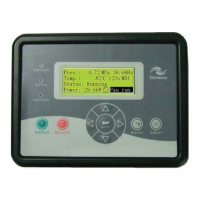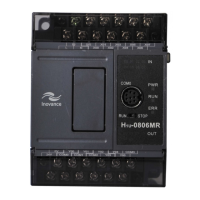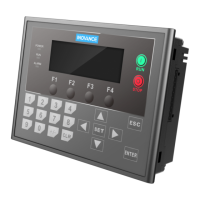92
4
4 Instructions4.3.1 Contact Comparison
FAND#: Floating-point AND contact comparison
◆
Overview
The FAND# instruction compares two operands and uses the comparison result to determine whether to
set a contact to ON or OFF (a node connected to another node in series).
FAND# S1 S2
Floating-point
AND contact
comparison
Applicable model:
H3U
S1 Data 1 Element number of source data 1 32-bit instruction
(9 steps)
FANDD#:
Continuous
execution
S2 Data 2 Element number of source data 2
Note: The # comparison operator can be =, >, <, <>, <=, or >=.
◆
Operands
Operand
Bit Element Word Element
System·User System·User Bit Designation Indexed Address Constant
Real
Number
S1 X Y M T C S SM D R T C SD KnX KnY KnM KnS KnSM
V,Z
Modication K H E
S2 X Y M T C S SM D R T C SD KnX KnY KnM KnS KnSM
V,Z
Modication K H E
Note: The elements in gray background are supported.
◆
Function
[S1] and [S2] are compared. The instruction is enabled when conditions are met; otherwise, it is disabled.
32-bit Instruction Enabled State
Condition
Disabled State
Condition
FANDD> S1 > S2 S1 <= S2
FANDD>= S1 >= S2 S1 < S2
FANDD< S1 < S2 S1 >= S2
FLD<= S1 <= S2 S1 > S2
FANDD= S1 = S2 S1 <> S2
FANDD<> S1 <> S2 S1 = S2
◆
Application

